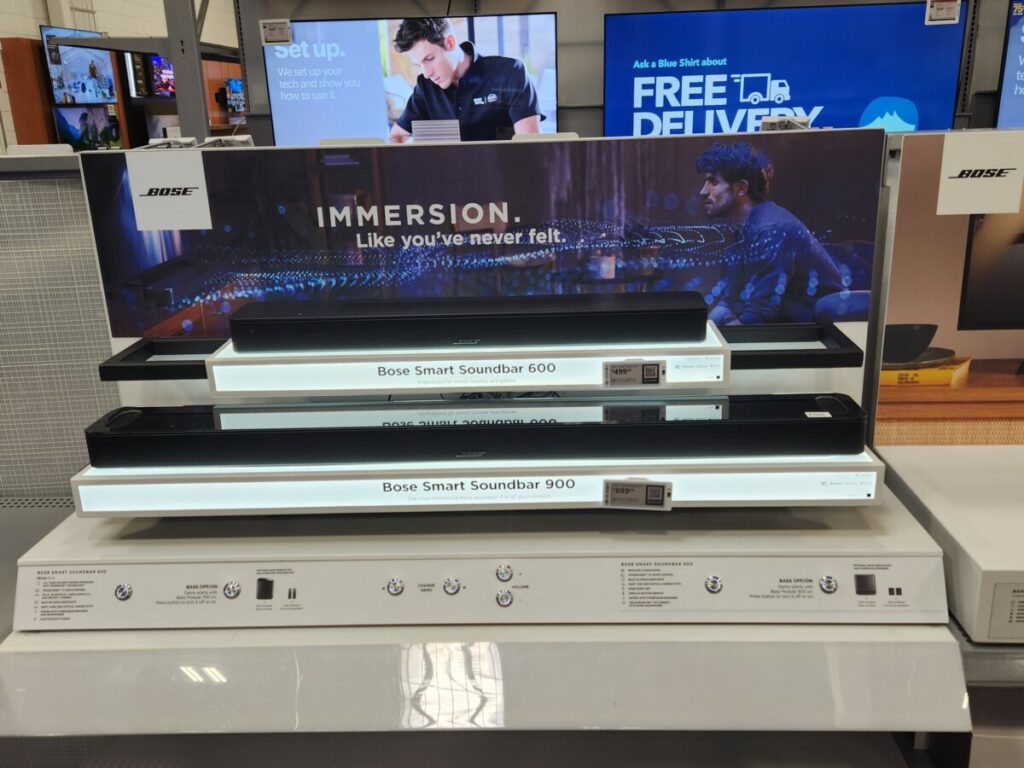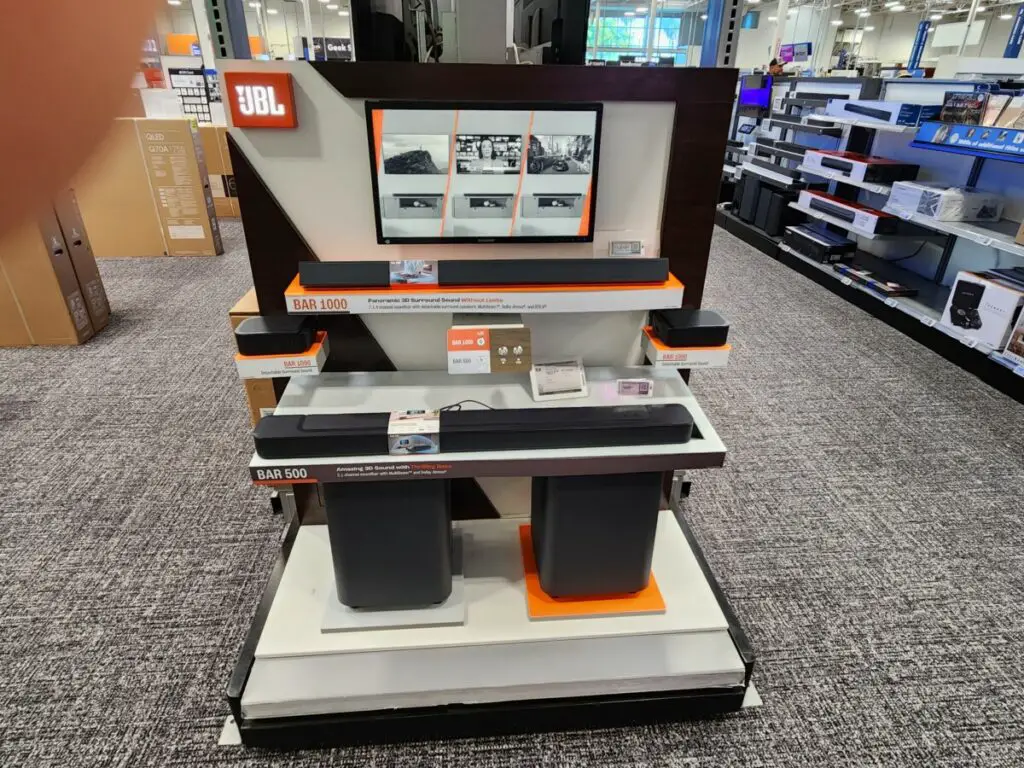As an Amazon Associate I earn from qualifying purchases
As we navigate the world of televisions, a common misconception often lingers: does the size of the TV directly correlate with its sound quality?
Or in other words, do bigger TVs have better sound?
The size of your TV has no effect on the sound quality you are receiving.
Almost all modern TVs have very small speakers that produce mediocre sound.
Instead of looking for a TV with good built-in speakers, you are better off investing in a soundbar or separate speakers instead.
In this blog post, I will explain further why modern TVs have such poor audio quality as well as what alternatives are out there.
It Does Not Matter How Big Your TV is Because Modern TVs have razor-thin speakers
Over the years TV manufacturers have made built-in speakers less and less of a priority.
The current trend is to make screens as thin as possible.
The focus with high-end TV’s like OLED is picture quality and sound is just something they don’t think about anymore.
I know this is definitely true in my case. My Sony OLED (affiliate link) has the tiniest speakers.
In fact, most TVs have the speakers behind the TV facing the floor which causes practically no bass response or dialogue clarity.
A lot of people have to frantically change the volume on their televisions to combat this.
There just isn’t much room to put speakers on modern displays because of how thin they are made today.
To combat this most retailers will offer a TV and soundbar bundle when you purchase a display, I will talk about this more in one of the following sections.
Throwback: Older TVs had bigger speakers
In the early days of television technology, older TVs were significantly different from the sleek, slim screens we see today.
One of the most noticeable differences was the size of the speakers.
These older TVs had much more space dedicated to their audio systems, allowing for larger and more powerful speakers.
The design of older TVs was more focused on functionality rather than aesthetics.
Manufacturers had the liberty to incorporate robust audio components within the television sets due to the ample space available.
This resulted in larger speaker cones, better amplifiers, and sometimes even multiple speakers placed strategically within the TV cabinet.
These speakers were capable of producing higher volumes and, in some cases, richer sound quality than what we commonly find in modern, slim TVs.
Ditch TV Speakers and buy a soundbar instead

Recognizing the mediocrity of TV speakers, the market has responded with a practical and efficient solution: soundbars.
These sleek, compact devices have revolutionized home audio, offering a compelling alternative to lackluster TV speakers.
Soundbars are designed to sit elegantly beneath your TV or mount on the wall, minimizing clutter and maximizing audio output.
Investing in a soundbar not only enhances the audio quality significantly but also provides a theater-like experience within the confines of your living room.
These devices utilize advanced audio technologies, including Dolby Atmos and DTS:X, to deliver immersive, multidimensional soundscapes.
From explosive action scenes to subtle whispers, a quality soundbar ensures every nuance of the audio is captured and delivered with precision.
Time to choose a soundbar
I’ve written a more in-depth article explaining why you should move on from TV speakers that I recommend that you read.
In fact, I specifically mentioned a list of soundbars you can purchase at the bottom of that article.
Choosing the right soundbar also involves considering your living situation.
For those residing in smaller spaces, there are specially designed soundbars that offer exceptional sound quality without overwhelming the room.
I have specifically created a guide regarding this. Detailing exceptional soundbars for those in smaller rooms that I recommend you read.
Bundle your soundbar with a subwoofer

For those seeking a truly immersive experience, soundbar and subwoofer combinations are popular choices.
Subwoofers add powerful bass to the audio setup, making action scenes more impactful and music more vibrant.
You can delve into the benefits of incorporating a subwoofer with a soundbar, explaining how it contributes to a fuller audio spectrum.
You can also choose to add rear speakers to your setup as well.
I discussed if this is necessary in a separate article on this site.
Pretty much any soundbar will come with an option to bundle it with rear speakers and a subwoofer.
Conclusion
The truth is, the size of your TV holds no sway over the sound quality it delivers.
Modern televisions, with their razor-thin designs, have sacrificed robust audio for aesthetics.
The once-generous space allocated for speakers in older TVs has now been replaced by minimalist, compact sound systems that often leave viewers frustrated with lackluster sound.
Fortunately, the market has responded innovatively with soundbars that elevate your audio experience beyond the constraints of TV speakers.
These devices, equipped with cutting-edge technologies, not only enhance audio quality but transport you into the heart of cinematic soundscapes.
Frequently Asked Questions
Why do older TVs sound better?
Older TVs sound better due to their design differences. In the past, TVs were bulkier, allowing manufacturers to incorporate larger and more powerful speakers.
These older models had ample space for robust audio components, resulting in richer sound quality, a feature sacrificed in the pursuit of slim, modern designs.
Will a soundbar improve TV sound?
Yes, a soundbar can significantly improve TV sound quality. Soundbars are specifically engineered to enhance audio output, providing a clear and immersive listening experience.
These devices utilize advanced technologies, such as Dolby Atmos and DTS:X, to capture and deliver nuanced sound details. Investing in a soundbar can transform your TV audio, bringing depth and clarity to your favorite movies, shows, and music.


